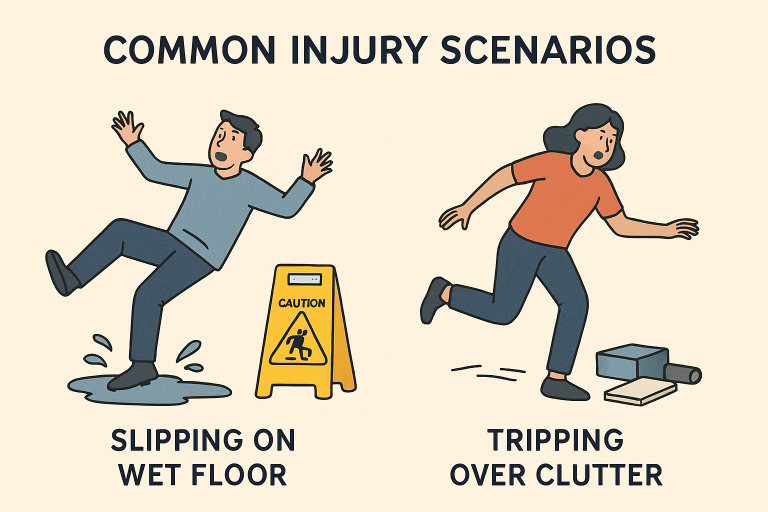Have you ever felt overwhelmed when thinking about buying or selling a home? The real estate market is full of opportunities, but it can also be confusing if you don’t know what to expect. From understanding property values to negotiating offers, many factors play a role in a successful real estate transaction. Whether you are a first-time buyer or an experienced investor, having the right knowledge makes all the difference. If you live in a place like Kansas, mortgage rates and market trends can impact your decisions, so staying informed is key.
In this blog, we will share essential tips to help you navigate the real estate market like a pro. These strategies will give you the confidence to make informed choices, whether you are buying or selling.
Research the Market Before Making a Move
Understanding the current market is the first step in making smart real estate decisions. Prices, inventory, and demand change over time, so knowing whether it’s a buyer’s or seller’s market can help you plan better. Look at recent sales in the area you are interested in to see how much properties are selling for. Pay attention to trends like rising or falling home values, as they can impact your timing and negotiation power.
Local factors, such as job growth and new developments, can also influence property values. If you are considering moving to a different city or state, research the cost of living and property taxes. Websites, real estate agents, and market reports provide valuable insights. The more information you gather, the more prepared you will be when making your decision.
Understand Your Budget and Financing Options
Your budget is one of the most important factors when buying a home. Before looking at properties, determine how much you can afford. Consider not just the purchase price but also property taxes, closing costs, and maintenance expenses. Getting pre-approved for a mortgage helps you understand your borrowing limits and makes you a more attractive buyer to sellers.
If you are purchasing a home in the area, you should pay attention to the mortgage rates in Kansas, as they can affect your monthly payments. Comparing loan options from different lenders can help you find the best deal. Fixed-rate mortgages offer stable payments, while adjustable-rate loans might provide lower initial rates but change over time. Weigh the pros and cons of each option carefully before committing.
Work with a Knowledgeable Real Estate Agent
A skilled real estate agent can save you time, money, and stress. They understand the local market, negotiate deals on your behalf, and guide you through the buying or selling process. A good agent will listen to your needs and provide advice based on their experience. They also have access to listings that may not be available to the public.
When choosing an agent, look for someone with a strong track record and good communication skills. Ask for recommendations from friends or read online reviews. Interviewing a few agents before making a decision helps you find someone you feel comfortable working with. Having a knowledgeable professional on your side makes the entire process smoother.
Know What You Want in a Property
Before you start looking at homes, make a list of must-have features and deal-breakers. Think about the location, size, layout, and amenities that matter most to you. If you need extra space for a home office or prefer a specific school district, prioritize those factors in your search.
Being clear about your preferences helps narrow down your options and prevents you from feeling overwhelmed. While some flexibility is good, try not to compromise on things that will affect your long-term satisfaction. A home is a big investment, so taking the time to choose wisely is important.
Be Prepared for Negotiations
Negotiating is a key part of any real estate transaction. Whether you are buying or selling, understanding how to negotiate effectively can make a big difference. Buyers should research comparable sales in the area to determine a fair offer. Making a reasonable first offer increases the chances of a successful deal.
Sellers should price their homes competitively to attract buyers while leaving some room for negotiation. Responding to offers quickly and staying open to reasonable terms can help close deals faster. Working with a real estate agent who has strong negotiation skills can be a big advantage.
Don’t Skip the Home Inspection
A home inspection is essential before finalizing a purchase. It helps uncover potential issues with the property that may not be visible during a regular showing. Structural problems, plumbing issues, or electrical concerns can be costly to fix, so it’s better to identify them early.
Hiring a professional inspector provides peace of mind and gives you leverage in negotiations. If major issues are found, you may ask the seller to make repairs or lower the price. Even if no major problems are discovered, an inspection helps you understand the true condition of the home before committing to the purchase.
Consider the Future Value of the Property
Buying a home is a long-term investment, so thinking about future value is important. Look for properties in areas with strong job markets, good schools, and growing infrastructure. These factors can help your home appreciate over time. Homes in desirable neighborhoods tend to hold their value better, even during market fluctuations.
Upgrades and renovations can also impact a home’s resale value. If you plan to make changes, consider how they will affect the property’s worth in the future. Buying a home with growth potential ensures that your investment remains beneficial in the years ahead.
Stay Patient and Keep Learning
Real estate transactions can take time, so patience is essential. Rushing into a purchase or sale without proper research can lead to regrets. Stay informed about market conditions and continue learning throughout the process. Reading articles, attending open houses, and speaking with professionals help you make better decisions.
Even after buying or selling a home, keeping an eye on market trends can be beneficial. Whether you plan to invest in more properties or move again in the future, staying educated ensures you remain confident in navigating the real estate market.
In conclusion, navigating the real estate market requires knowledge, preparation, and patience. By researching the market, understanding your budget, working with a good agent, and negotiating wisely, you can make the process easier. Whether buying or selling, these strategies will help you make confident decisions. The more informed you are, the better choices you can make for your future in real estate.





























































































































